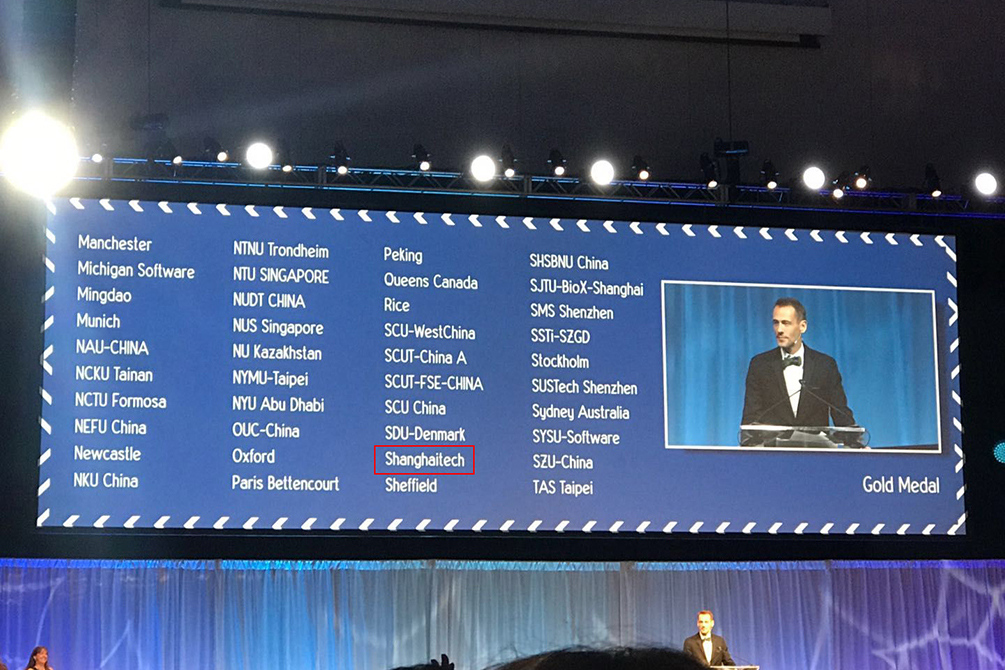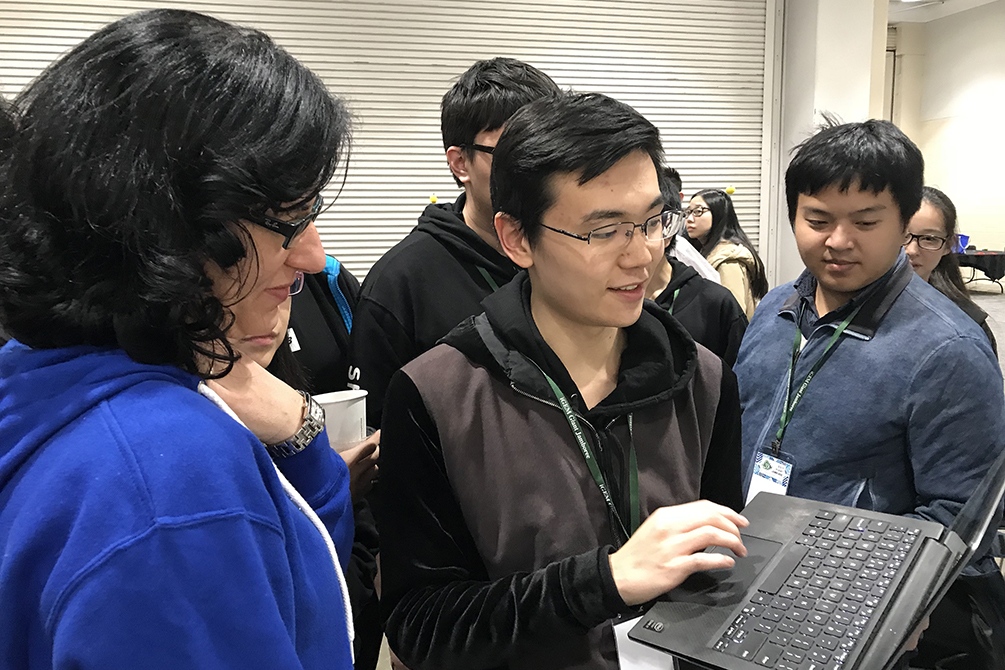At 1:30 pm EST on November 13, 2017, the 2017 Global Finals of the International Genetically Engineered Machine Competition (iGEM) came to a close at Hynes Convention Center in Boston, Massachusetts. ShanghaiTech’s team had an outstanding finish by winning the Gold Medal, Best Hardware special award and were nominated for four other awards: Best Foundational Advance Project Nomination, Best Education & Public Engagement Nomination, Best New Composite Part Nomination and Best Safety & Security Commendation Nomination.
This year's iGEM competition attracted more than 300 teams from top international universities around the world, including Harvard University, Massachusetts Institute of Technology, Stanford University, Oxford University, University of Zurich, William and Mary College and etc., which have long history of competing at iGEM. A total of 58 undergraduate teams, including Tsinghua University, Peking University, Fudan University, Shanghai Jiao Tong University entered the fierce competition. ShanghaiTech has a great record for its short history of participating in iGEM and last year won a gold and a silver medal.
The iGEM competition brought students and professors together from different schools of ShanghaiTech. This year's team was advised by two assistant professors from SLST, Shen Wei and Zhuang Min. The team consisted of SLST junior students Ba Fang, Chen Mingzhe, Luo Fang, Lin Yi, Wei Yin, Tang Ni, Liu Kexin, Yu Yi, Ni Yun, Zhang Zicheng, Chen Lin, Ding Yifan and sophomores Chen Xiangning, Yang Yiqing, Qin Yuqi, Tang Weiyi, Ma Puyi; SPST junior students Fang Xue and Gao Bo as well as SIST sophomore student Hu Yanpeng.
The theme of iGEM this year was called the "Magic Block," aiming to create a public platform that could lower the threshold of synthetic biology and allow more scientists and the general public to participate in the design and application of synthetic biology. The team members designed software for the customer end, cloud servers and experimental robots. The designer only needs to design the experiment through the software, upload the design to the lab through the cloud server, and realize the production of complex biological products with the help of remote experimental robots. The team members proposed a new modular concept in the wet lab section of this year's project. Unlike iGEM's "components," which traditionally refer to the smallest unit with genes loops, the team members treated different bacterial colonies as components, through Quorum Sensing System to achieve the exchange and communication between the components. Eventually, the team tested the platform, including hardware, software and biological templates, and achieved initial success. Subsequently, the team members carried out a wide range of social engagement activities (workshops, publicity, etc.), so that the public could be directly involved in the subject to verify the feasibility of the project.
iGEM is an international academic competition in the field of synthetic biology initiated by the Massachusetts Institute of Technology in the United States in 2003. The competition encourages creative innovation, interdisciplinary, and concerned with the actual production, the close contact between social issues as well. Many teams participating in the competition establish their own projects, design models and the use of experimental verification around the specific theme, for energy, medical, environmental and other applications. The preliminary project researches are conducted in the organizations where the participating teams were located. The competition was held in the United States. Gold, silver and bronze awards and a number of individual awards were selected through many rounds of posters and project presentations. Over the years, many of the research results from participating teams have been published in top international academic journals such as Science and Nature, which highlights the level and value of this contest.
For more information plz visit:http://2017.igem.org/Team:Shanghaitech



- About
- News
- Faculty
- Research
-
Academics
- School of Physical Science and Technology (SPST)
- School of Life Science and Technology (SLST)
- School of Information Science and Technology (SIST)
- School of Entrepreneurship and Management (SEM)
- School of Creativity and Art (SCA)
- Institute of Humanities (IH)
- School of Biomedical Engineering (BME)
- Shanghai Institute for Advanced Immunochemical Studies (SIAIS)
- iHuman Institute
- Institute of Mathematical Sciences (IMS)
- Center for Transformative Science (CTS)
- Institute of Carbon Neutrality (ICN)
- Shanghai Clinical Research and Trial Center
- Tech Transfer
- Global
- Campus Life

